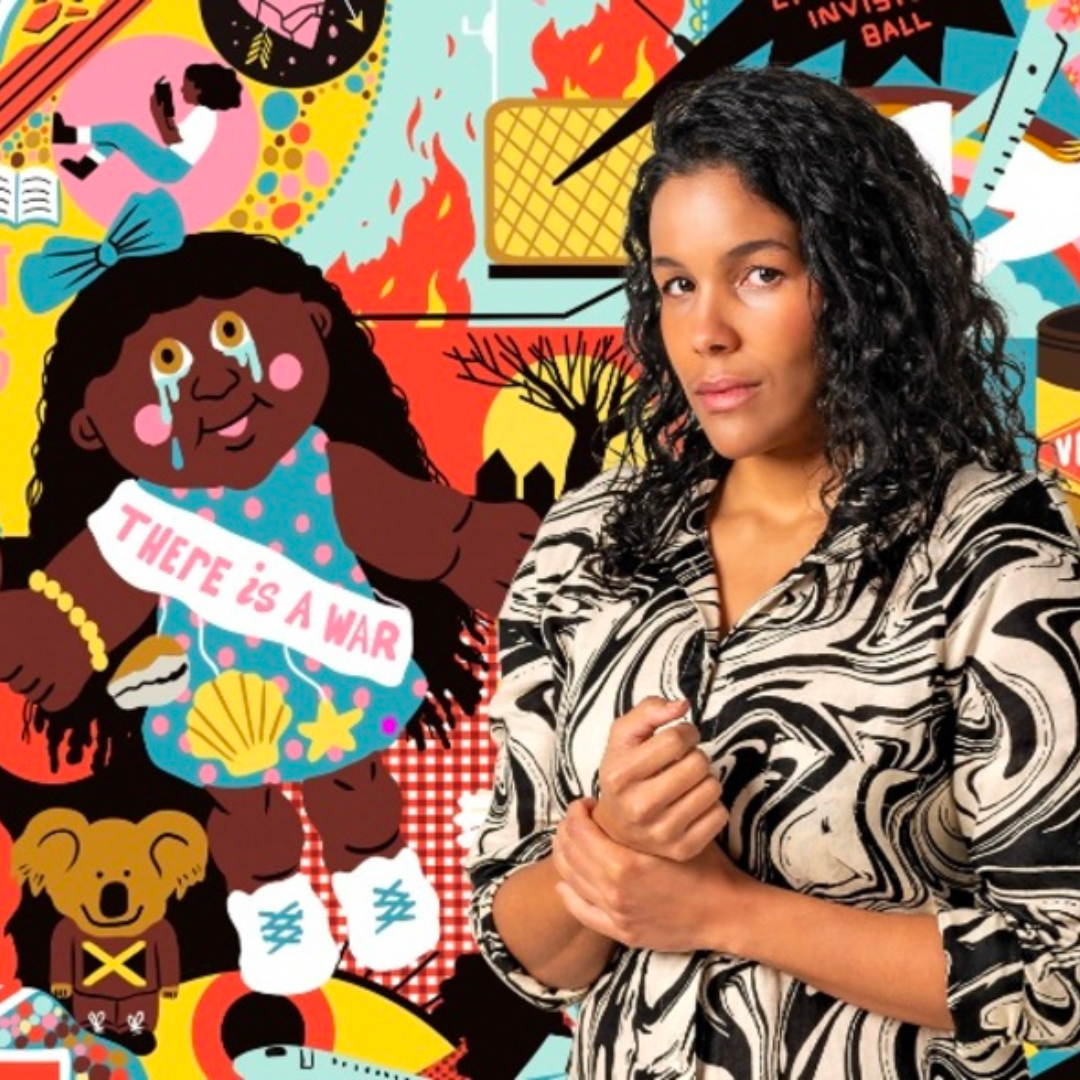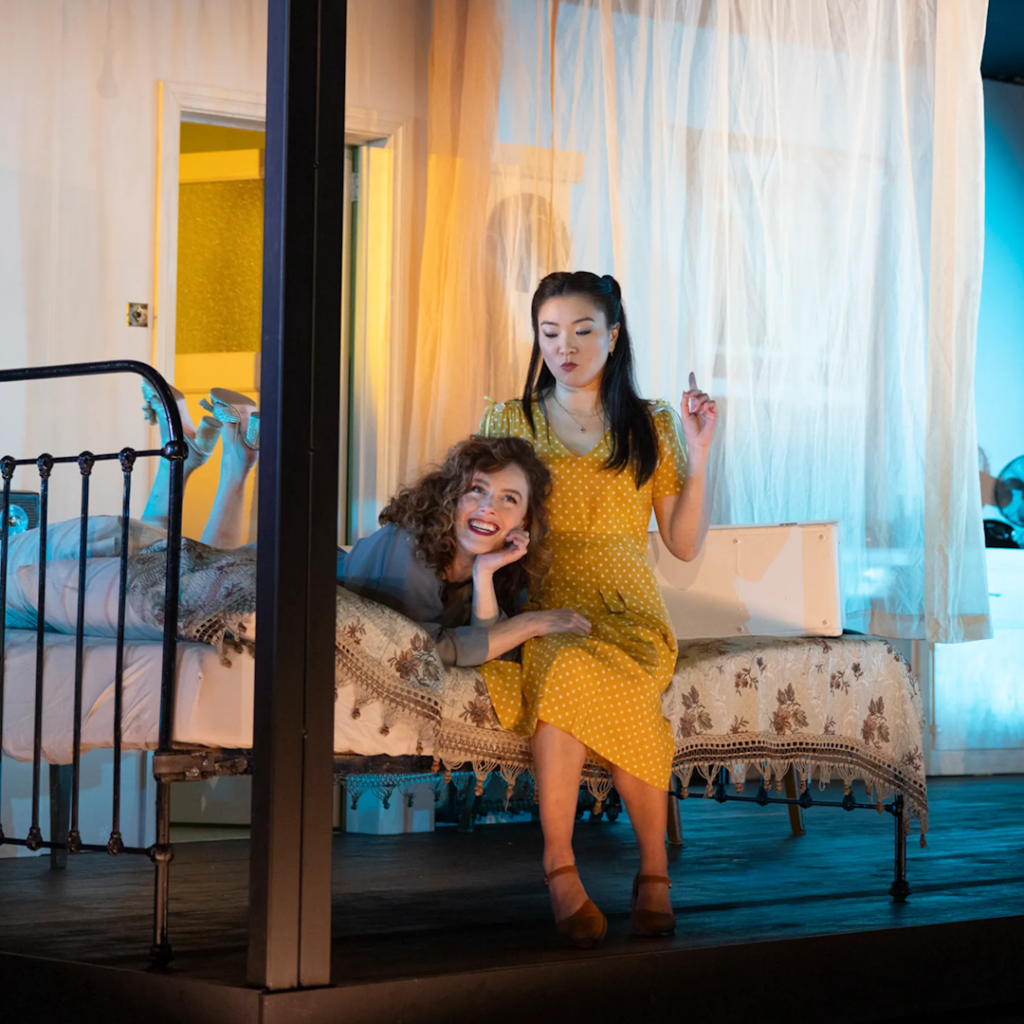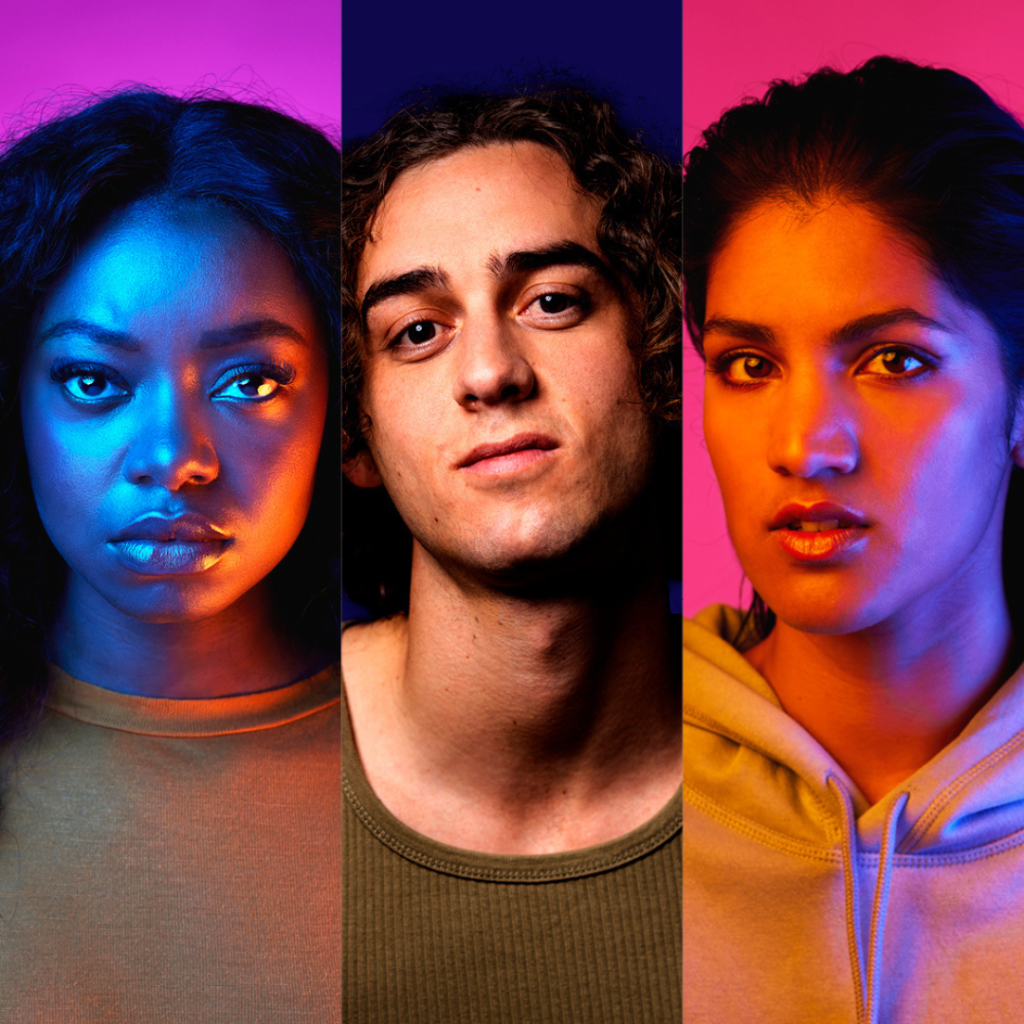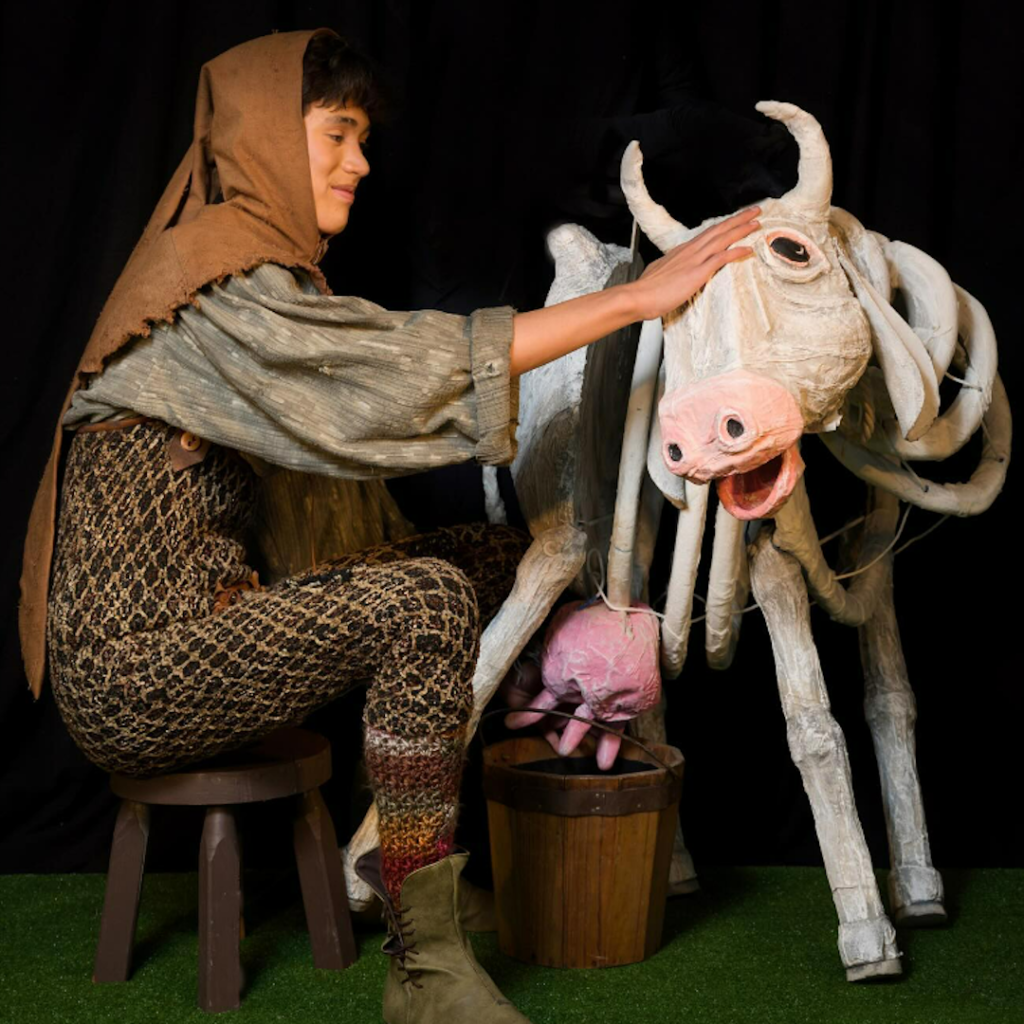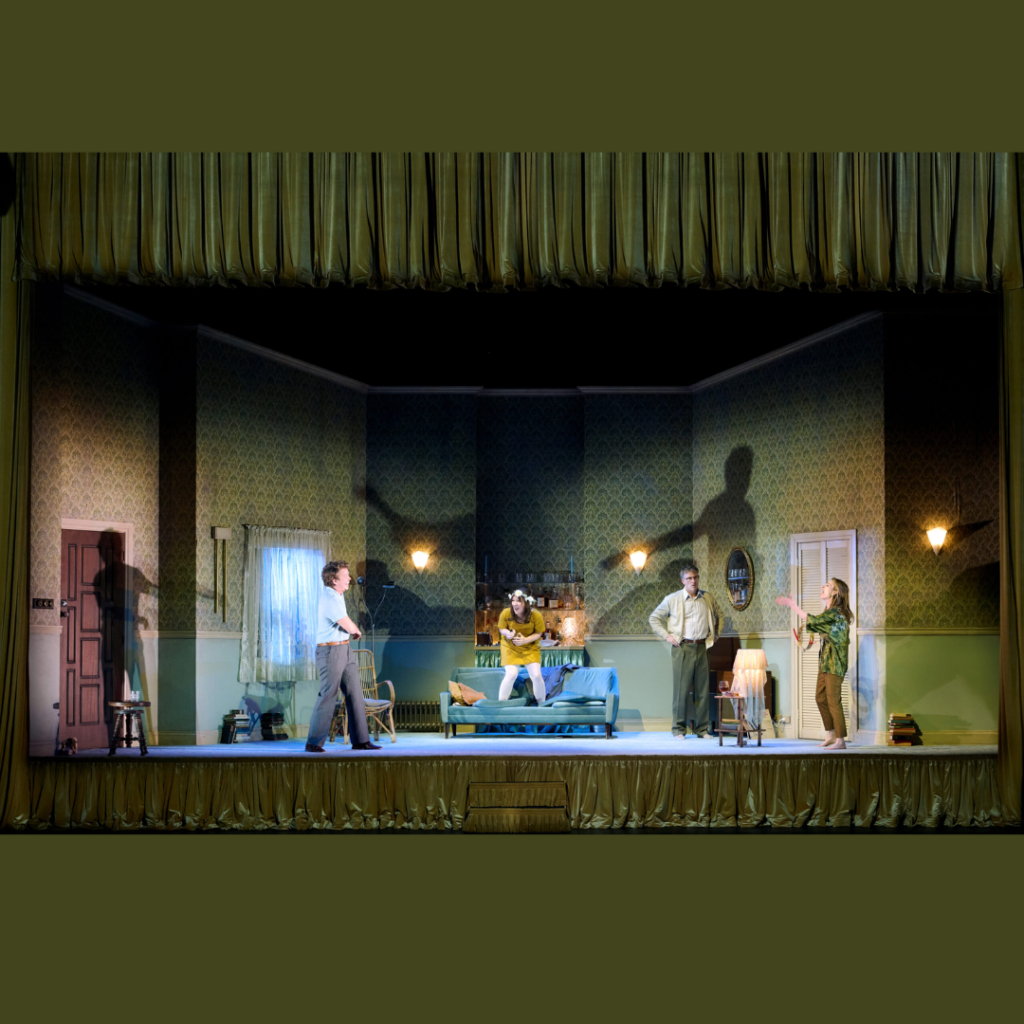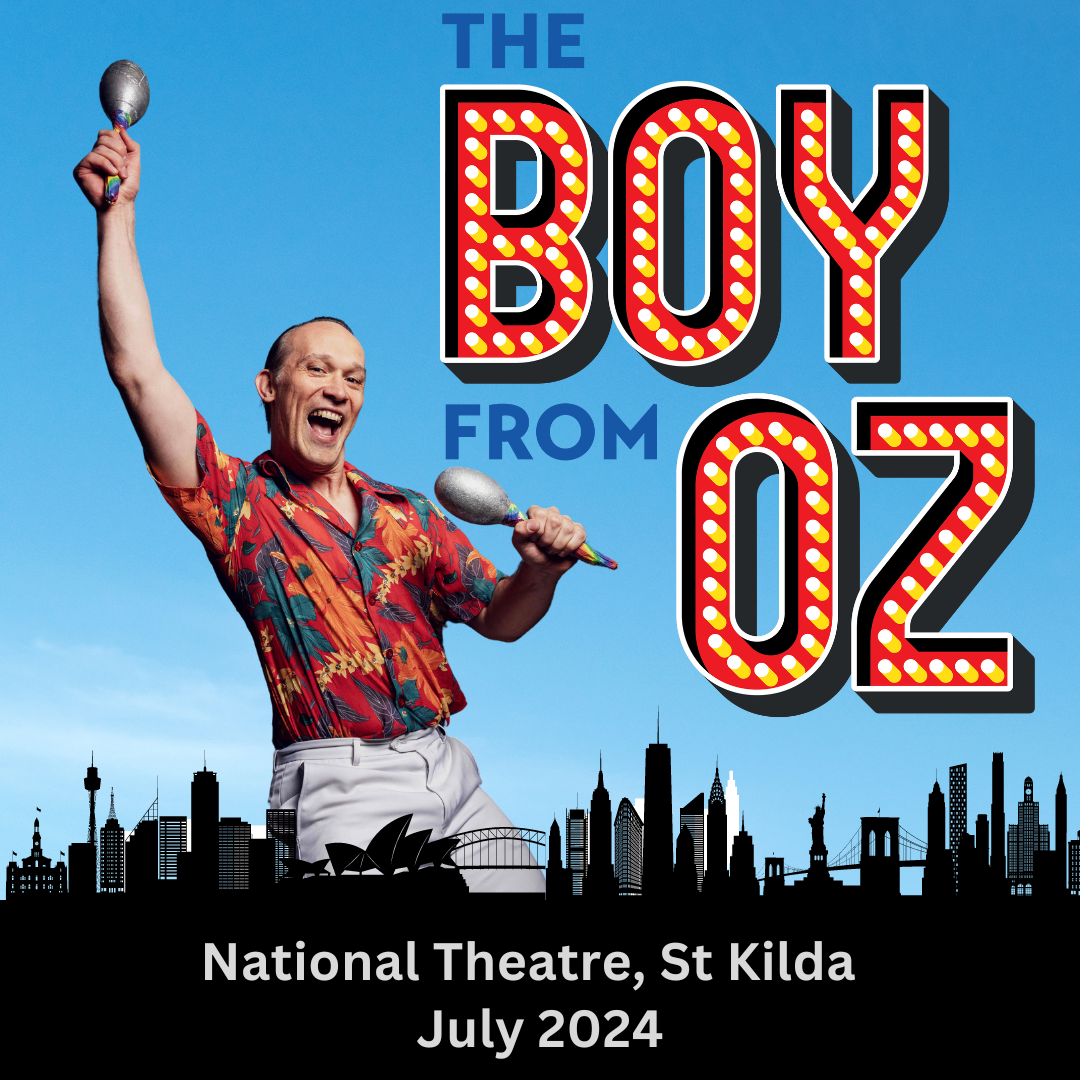Racism comes in many forms and from many quarters and can strike with the speed of a bullet train. That subject is explored in a dramatic and humorous way through a series of anecdotes from the coloured English daughter of West Indian parents. Her mother is an actress and her father a mathematician, who migrated to Australia. She also has a sister and a brother. This is a look at the 1980s and ‘90s through her eyes.
The play’s writer is Maxine Beneba Clarke, who originally wrote the piece as a memoir, which became a bestseller. Thereafter, she adapted it for the stage. So, this is very much her story, told through truly remarkable acting from Zahra Newman. She assumes the character of Maxine and others of significance in Maxine’s life. It starts with her first day of pre-school.
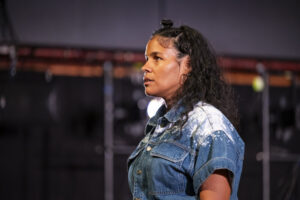
At the time, she is but four years of age and is taken aback when an ash blonde girl calls her out for being “brown”. Skip forward a year and a half. Maxine is now in grade 1 and is asked by her teacher to open up about her story. A subsequent question and answer session leads to humiliation. Then there’s an incident in a shopping centre parking lot and a subsequent desire to fit in. That is reflected in the desperate wish for a white (not a dark coloured) cabbage patch doll.
A pivotal moment comes when Maxine sees a black girl her age on television. Later, her best friend scarpers when Maxine and her brother are picked on because of the colour of their skin by boys riding bikes in the park. Another student calls out Maxine at school using a derogatory term and the teacher shockingly sides with that pupil. And on it goes. So, little wonder Maxine dreams of being white … to stop the denigration and heartache.
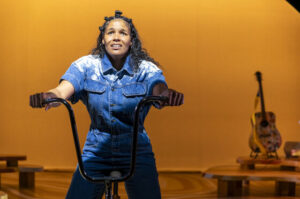
Through it all though, Maxine does well at school and develops a voice, such that she won’t be silenced. We move through high school and into her early years of motherhood. In spite of the ordeal she faces, before it is over the play adopts a positive tone, leaving us with hope that people can change and become more tolerant. The storytelling in The Hate Race is infectious, engaging and entertaining. I emphasise that in amongst the outrage we feel watching events unfold, there is fun and laughter.
In carefully crafting the work, Maxine Clarke has – at times – deliberately lightened the load, ensuring it is always accessible. Zahra Newman’s is one mighty special performance, with seamless mood shifts throughout as Maxine morphs from confused to confident. Indeed, Newman’s is a bravura showing, which exposes the litany of name calling and aggression that takes place, which chips away at Maxine. But, Newman also emphasises Maxine’s resilience, as we in the audience continue to cheer for her.

The narrative is complemented by the music of the times from the pure, velvety smooth voice of Kuda Mapeza. I yearn to hear more from her. Set and costume designer Zoe Rouse has crafted a most tasteful and appealing set with earthy tones that reminded me of the Australian outback. One of the things that stood out about Hate Race for all the right reasons was the pacing. Co-directors Tariro Mavondo and Courtney Stewart have ensured the anecdotes keep on coming without respite, making Hate Race compelling theatre.
Sixty-five minutes without interval, it is playing at Beckett Theatre, at Malthouse Theatre until 17th March, 2024.

